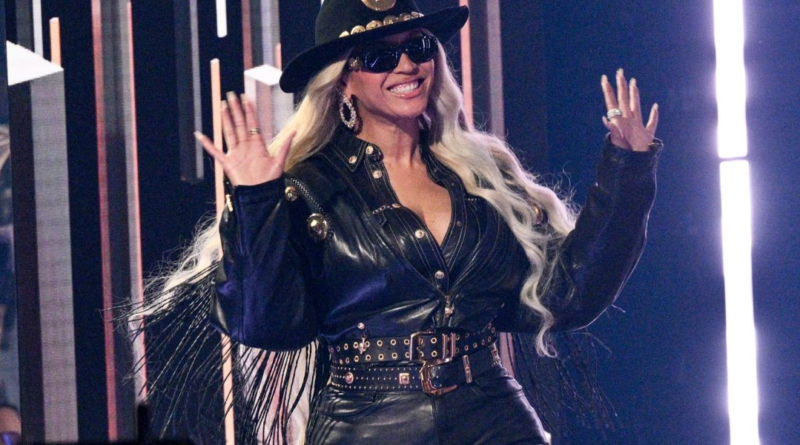Fannie Mae CEO: Beyoncé is right. Climate change has already hit the housing market—and homeowners aren’t prepared
Two names you’d never expect to hear together: Beyoncé and Fannie Mae. But in her song “YA YA” on her new album, “Cowboy Carter,” she sounds an alarm that’s growing louder in communities across America. “Wildfire burnt his house down/Insurance ain’t gonna pay no Fannie Mae.”
We appreciate that Beyoncé raised this issue. For the record, Fannie Mae would help this man. While we don’t make home loans or collect payments (we buy and back mortgages), we do offer payment relief and other help if disaster strikes our homeowners.
However, Beyoncé has a point: An estimated one in 13 U.S. households are uninsured and two-thirds are underinsured. This means that millions of families have limited or no protection against growing climate-related risks, such as wildfires and other disasters.
For housing, climate change is a today problem. Each year since 2021, the U.S. has averaged 22 natural disasters with damage exceeding $1 billion. Last year brought 28. In the 1980s, the average was three per year. Forecasters already project this year’s Atlantic hurricane season will be “extremely active,” with the most storms since 1995.
Disasters are touching every state, including inland flooding in areas such as Vermont and Las Vegas, which are not generally considered at high risk. Low-income communities are the most vulnerable, with housing that is often less resilient and located in more disaster-prone areas. Longer-term, rising temperatures, increased flooding, water scarcity, and more wildfires could drive down property values for homeowners, and even spark climate migration as people escape high-risk areas.
Since Fannie Mae guarantees about one in four home mortgages plus loans on rental housing, we’re closely assessing the financial risks to both our company and the mortgage industry, such as potential impacts on mortgage delinquencies, property values, and the affordability, availability, and reliability of insurance.
But climate change is a growing risk that demands a collective response, starting with three urgent priorities.
Boost consumer awareness and action
Homeowners are housing’s first line of defense, but do they realize it?
A Fannie Mae survey found nearly 50% of consumers worried about the climate impact on their homes, especially from extreme heat, strong winds from tornadoes and hurricanes, drought, wildfires, and flooding. And 66% of insured homeowners said weather-related events and damage have affected their premiums.
Another Fannie Mae survey found only 37% of those living in FEMA high-risk flood zones and 5% in mid-risk zones were aware of their flood risk. Yet 51% said that a home’s flood history is critical to their purchasing decision. Together these numbers underscore how important it is for the industry to make this information more widely available to potential buyers.
Similarly, Fannie Mae engages in a year-round outreach effort to provide homeowners and renters in disaster-prone areas with information on how to protect against natural disasters and work with FEMA, other agencies, and mortgage lenders to recover faster. We, along with others, are testing messages for spreading this type of information that could be leveraged in a nationwide housing climate awareness and preparedness effort.
Make housing more climate-resilient
Less than a third of building codes factor in the frequency and severity of today’s natural hazards. It’s folly to rebuild homes destroyed by disasters the same way.
Lenders can offer our affordable financing for homeowners to protect their homes with storm surge barriers, upgraded roofing, or wildfire home hardening. But we need bigger, bolder housing resiliency solutions that include incentives for builders, insurers, buyers, and owners to act now. It won’t be easy. Solutions need to be localized to reflect the actual risks facing particular communities. They also entail difficult trade-offs and costs.
Heed the early warnings on insurance
Home insurance is a major concern. Inflation and state-specific issues are big drivers affecting price and availability so far. But climate risk is a growing factor as severe weather continues to increase. Improving consumer awareness of their insurance needs and making homes more resilient will help sustain our insurance markets. But they may not be enough, and the insurance and housing industries need to think creatively about new approaches and hard choices.
Climate risk to housing is complex with no easy win-win answers. But it’s clear as an industry we need to step up by driving awareness, boosting resiliency, and being proactive on insurance. This is not alarmism—it’s our responsibility. As a housing leader, I’m committed to working across industries for common-sense answers. For her help in highlighting the issue, let’s thank Beyoncé.
Priscilla Almodovar is the president and CEO of Fannie Mae.
More must-read commentary published by Fortune:
The opinions expressed in Fortune.com commentary pieces are solely the views of their authors and do not necessarily reflect the opinions and beliefs of Fortune.




